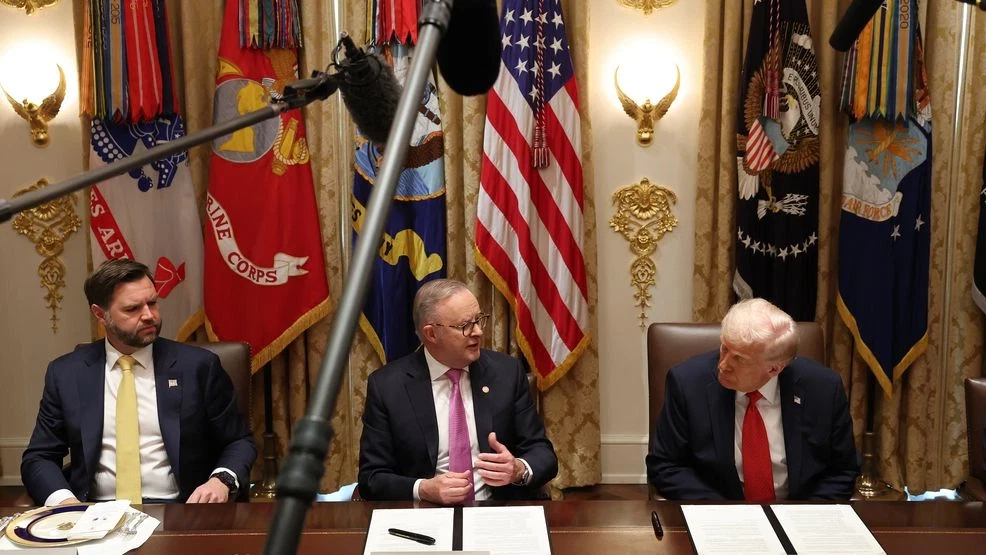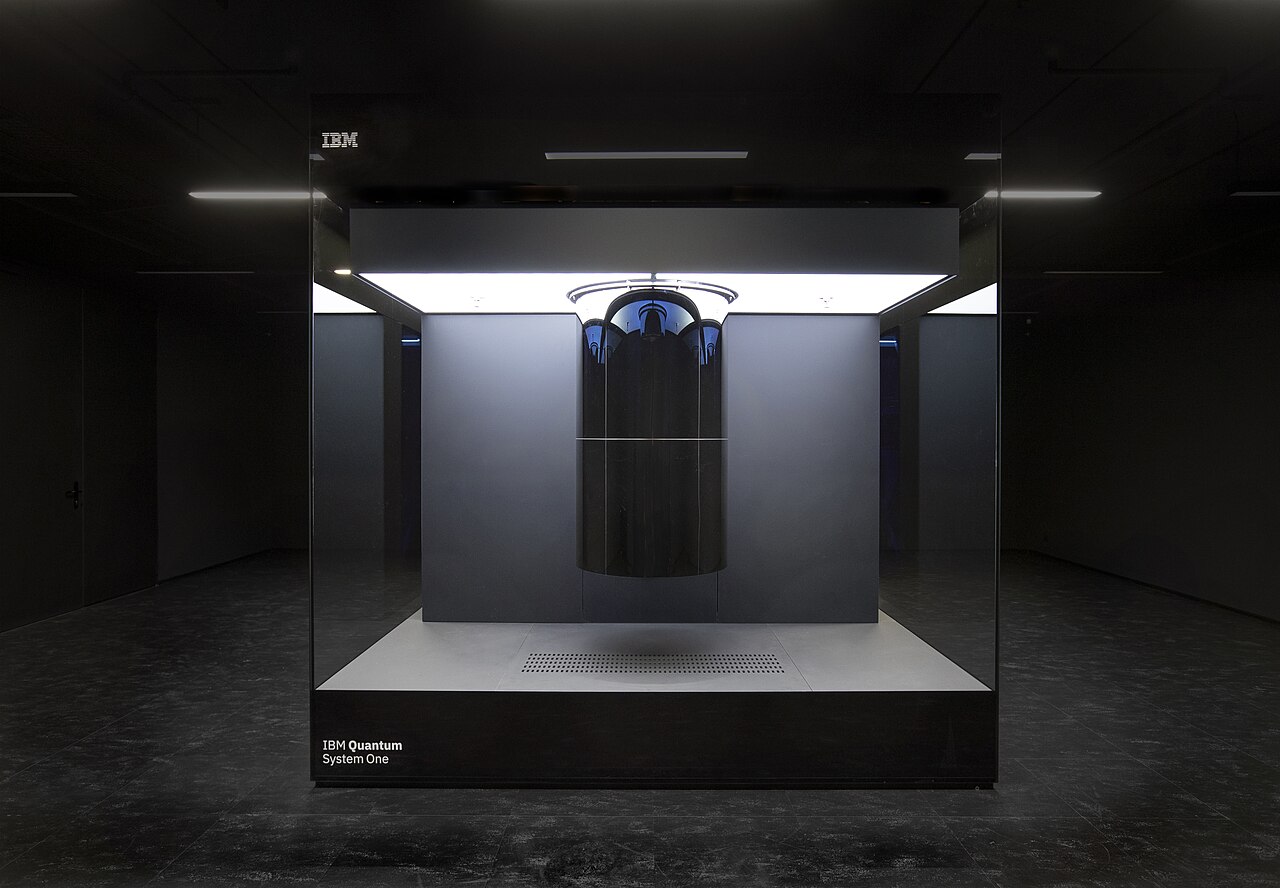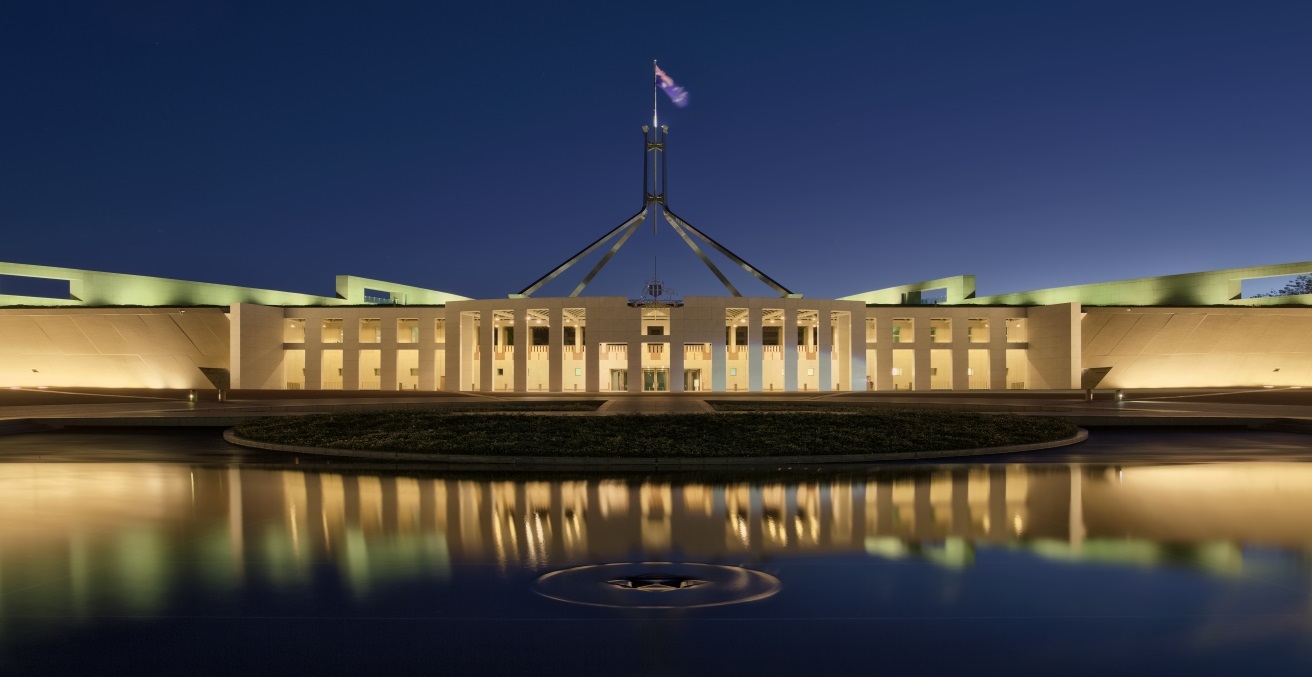The Trump-Albanese meeting delivered substantial wins—a critical minerals deal and strong AUKUS backing—without the theatrical flattery that has marked other leaders’ approaches. Australia’s greatest advantage may be flying under Trump’s radar, allowing policy progress without becoming a target of his transactional worldview.
The outcome of the first serious Trump-Albanese meeting was always going to be unpredictable, which makes its deliverables all the more impressive.
By any objective measure, the meeting was a success. The headline outcome, a US $8.5 billion critical minerals framework, builds the backbone for joint investment in at least six Australian projects. It stands as recognition that governments must act to counter China’s dominance over rare earths and supply chains. The agreement, coming just days after Beijing’s threats to tighten exports, could not have been better timed.
It was also the first time Trump had spoken at any length about AUKUS, which he enthusiastically backed. One Australian journalist attempted to stir the pot by alluding to AUKUS as a Biden initiative. This didn’t faze the president, because, under Trump, of course, AUKUS was just better. When the question of “ambiguities” in the arrangement arose, Trump’s instinctive remark to his Navy Secretary was vintage: “You’re going to get that taken care of, right?”
Trump didn’t seem to know what those ambiguities were, but they were probably a reference to critical aspects of the upcoming US Defence Department review of the deal. Trump’s comments will probably deflate any criticism of AUKUS that the review might contain. This is how autocratic leadership works: leaders make comments, and underlings have to scramble to align to the new political reality.
Then there was the syrupy gush of praise Trump thinks others crave, mainly because he wants it himself. Albanese had “done a fantastic job” and was “very popular.” There was no berating about defence spending, no lecturing about tariffs beyond a perfunctory “Australia pays the lowest.” Trump repeated a line about Australia buying Boeing jets that Albanese had mentioned in earlier phone calls.
The Australian prime minister did commend Trump on his foreign policy wins, notably the Middle East peace deal, but he was hardly as effusive as his counterpart.
This kind of meeting, one that clearly advances the relationship but doesn’t succumb to the routine sycophancy we’ve come to expect from other leaders, is a win—and not one that happens by accident. As Foreign Minister Penny Wong (in Australia) noted afterwards, the success of the meeting reflected months of “enormous work and effort,” particularly from Ambassador Kevin Rudd and officials coordinating the minerals deal. Despite sections of our media bleating for months about the lack of personal contact, the government’s quiet preparation here has produced positive results.
While the Australian government noted his work as essential, much of the press commentary will zero in on the short, mildly awkward exchange concerning Rudd—in particular, Trump’s comment that he did not like Rudd because the Australian ambassador had once “said bad” about him. Although it was a comic aside, it will likely be replayed ad infinitum in years to come as one of those “moments” in Australian political history.
The exchange with Rudd was sparked by a question from an Australian journalist. That the question was rolled into an inquiry on other supposed irritants—climate change and Palestine—was unfortunate. It would have been far more illuminating to hear Trump discuss Australia’s stance on those key global issues.
Because in reality, what our media won’t focus on is that Australia obviously does not enter Donald Trump’s imagination much at all. While that may be problematic to those who maintain that the Australian prime minister must be consistently courting the US president, it is actually very good news in today’s political climate.
Trump’s worldview is transactional and emotive. He formed his views on international relations in the 1980s. A central US foreign policy narrative at the time was that Japan had manipulated trade policy and would eventually seek to dominate the United States economically—and, in more paranoid permutations of the theory, even militarily.
Trump now extends this view to fixate on other allies that can be cast as taking advantage of America or thwarting its interests: Germany, South Korea, and, occasionally, Japan, despite its lost decades.
Nations that neither threaten nor flatter this domestic narrative often don’t register.
Australia, in that sense, is blessed by neglect. Australia receives American investment, we host US troops, we don’t run large trade surpluses or challenge Trump’s self-image. For him, we are at best background noise: the loyal ally that doesn’t need managing. That may bruise our national ego, but it keeps our interests out of the crossfire.
Because Australia is not a prop in Trump’s theatre, policy can proceed quietly. The critical minerals deal and the AUKUS confirmation unfolded without drama precisely because Trump had no real domestic incentive to grandstand on these issues.
It’s a pity, then, that many in Australia continue to personalise the alliance. Some focus on whether Albanese can get along with Trump, as if the bilateral relationship were an episode of The Apprentice. That mindset downplays the reality that Australia’s ties with the United States are institutional. They are embedded in bureaucracies, militaries, intelligence agencies, and networks, as well as shared interests that traditionally outlast any one presidency. The danger to us is that Trump is shredding many of these institutions, not that he will focus his ire on Australia or any one Australian in particular.
The Albanese-Trump meeting worked then because of structure, not chemistry. Trump’s lack of emotional investment in Australia insulated Albanese from the volatility that has sometimes derailed other bilateral relationships. The result is a successful encounter: mostly polite and productive, if at times banal and rambling.
Australia should draw confidence from this. When Albanese told Trump that Australia’s approach to critical minerals was “a bit similar to putting America first,” he wasn’t pandering. He was translating policy into a language Trump understands. There have been politicians—Scott Morrison, Shinzo Abe, Victor Orban or even Kim Jong Un—who pursued flattery of Trump to measurable effect. However, the Albanese meeting shows that our engagement with the United States need not rely on such theatrics.
Anyone who works adjacent to diplomats knows that attention and pecking order are often an obsession in the business. Under circumstances previously described as normal, attention from our powerful ally would have been interpreted as an asset. Ironically, however, in the current international environment, to be largely off the US president’s radar affords the Australian government room to pursue its goals.
Dr Bryce Wakefield is the CEO of the Australian Institute of International Affairs and a Visiting Fellow at the Australian National University. He has lived, worked and researched in the United States, Japan, Europe and New Zealand. He trained as a political scientist with particular expertise in International Relations and the international affairs of East Asia.
This article is published under a Creative Commons license and may be republished with attribution.





